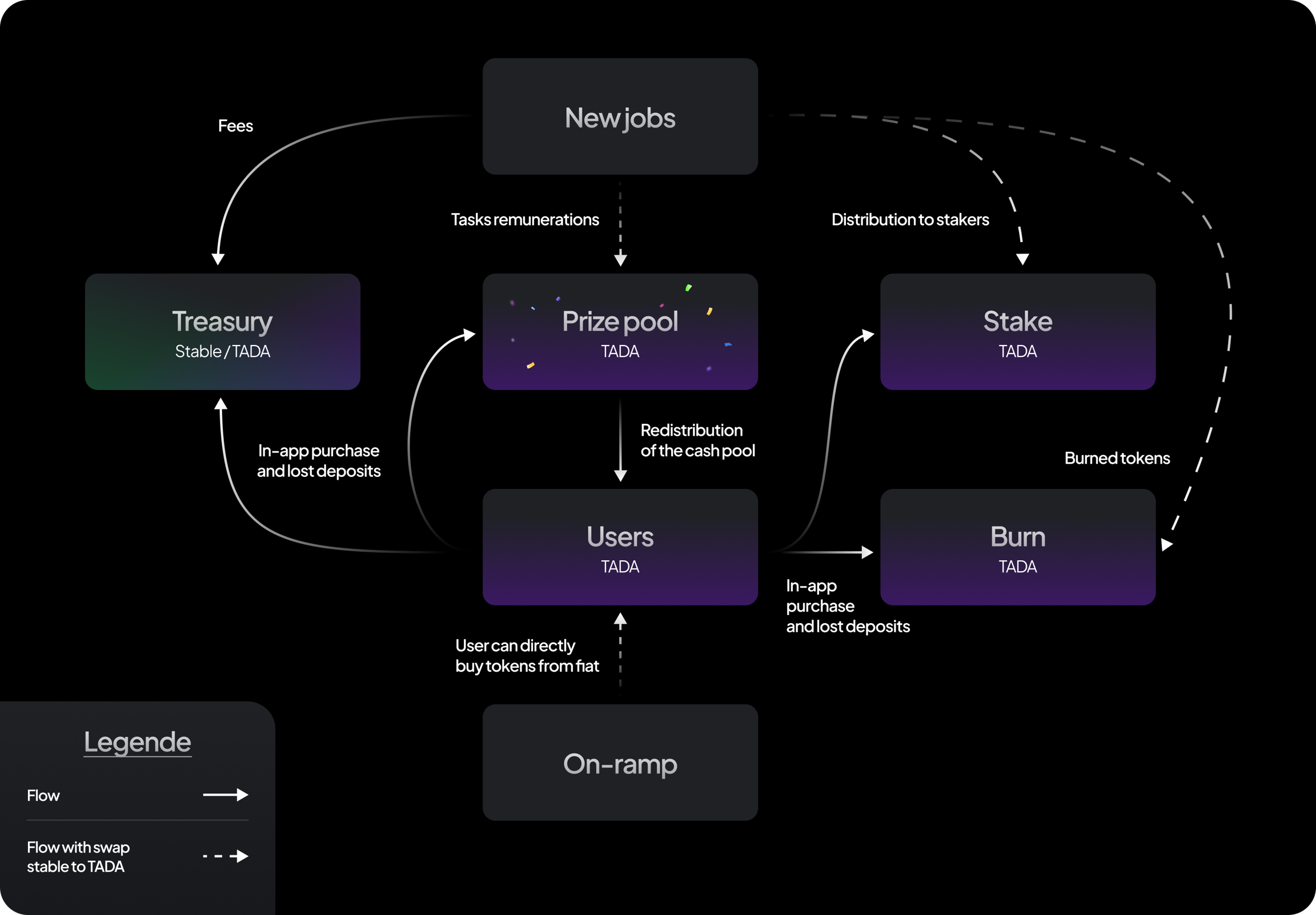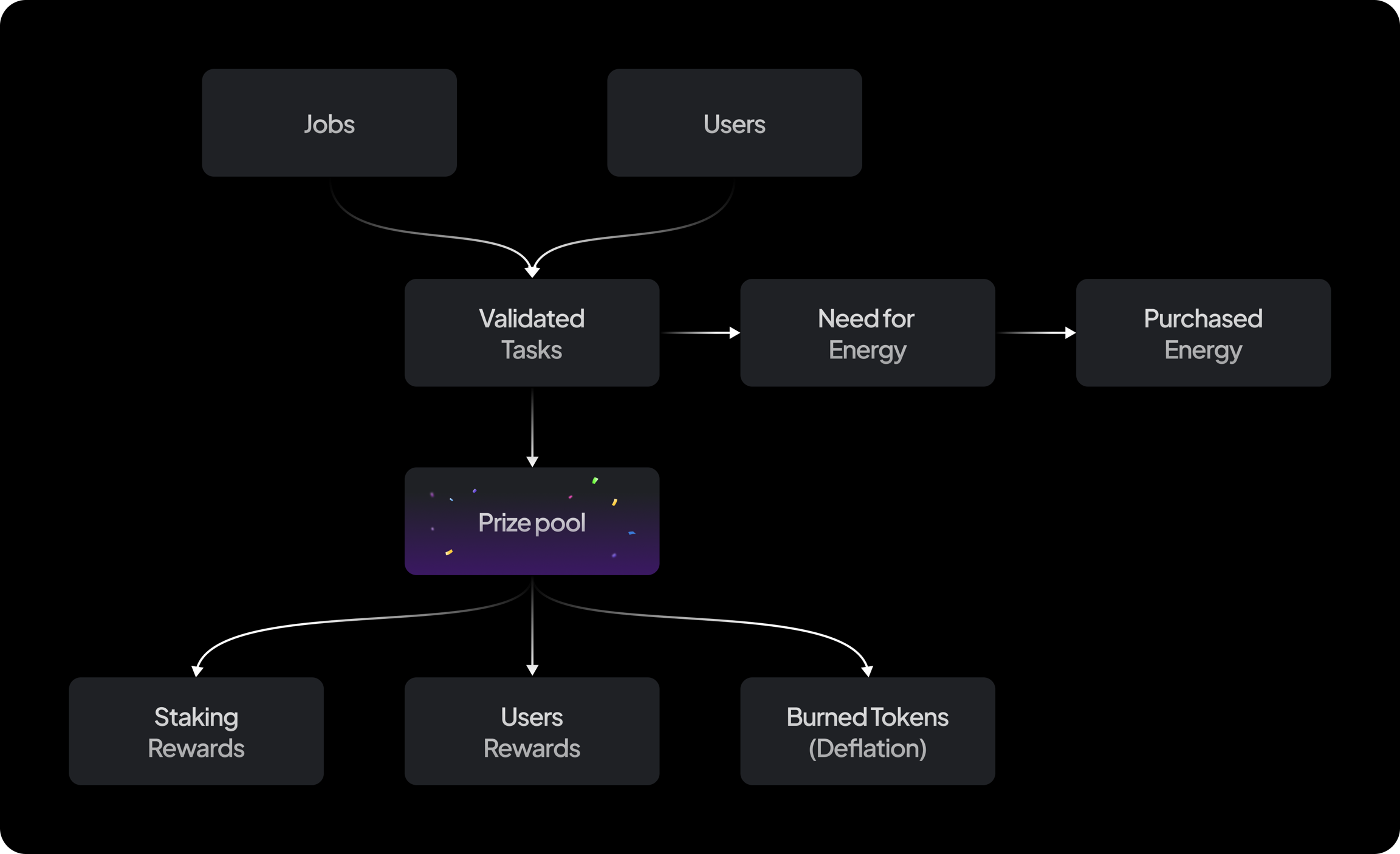➡️Money Flow
Ta-da redistributes money from customers to the community. This section describes how the redistribution system works. This is an important feature that has significant effects on user incentivization and enables the creation of a complete game economy, which will be discussed in more detail in the following sections.
The diagram below shows the various cash flows through the application:

When a customer orders data on Ta-da, he pay in fiat. This money is converted into stable coin and distributed into four buckets: Ta-da's treasury, staking, the prize pool, and the burn. Each time a user validates a task, the compensation for the task is used to buy TADA tokens that are then placed in the prize pool. The more tasks are validated, the larger the prize pool and the more TADA tokens are purchased on the market. Every day, the prize pool is redistributed to users in a non-linear way: the top users earn a large part of the pool, while the last ones earn less. Part of in-app purchases, lost deposits and non-claimable rewards from redeemed T-Bondz are reinjected into the next prize pool. Another part is burned creating a deflationary economy and the rest is redistributed to the treasury and stakers. Such an economy impacts all the agents involved. The diagram and explanations below illustrate the positive interactions generated by this economy. On this one, each arrow means "increases," for example: more users increases the number of validated tasks, validated tasks increase the prize pool, etc.

Here are some explanations regarding these positive interactions:
The more jobs and the more users, the greater the number of validated tasks.
The more validated tasks, the larger the prize pool.
The more validated tasks, the larger the need for energy (tasks require energy to be filled).
The greater the need for energy, the more energy purchased.
The more energy purchased, the larger the prize pool.
The larger the prize pool, the more tokens users will earn.
The larger the prize pool, the greater the staking rewards will be.
The larger the prize pool, the greater the number of tokens that will be burned.